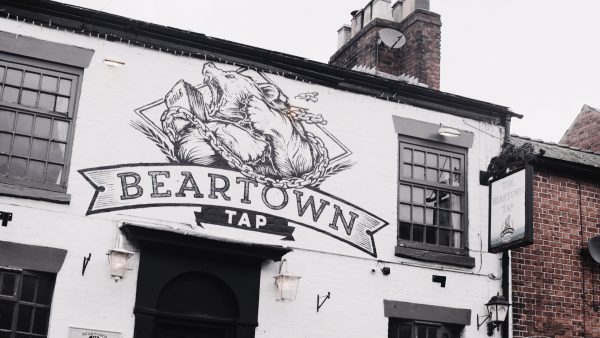Congleton Jazz and Blues Festival is a decade long tradition built from the ground up on community, historic roots, and local creative endeavour and vibrancy.
Years of discovery, several incarnations and a re-design (or two!) later, the festival proves progressive in its strive to entertain the people of Congleton. Rooted in the popular pub and music scene in the town, it quickly expanded to feature quirky craft and outdoor events during the day, taking on Umbrella Parade duties (the first of its kind in The North West) in homage to the original festival based in New Orleans. Akin to its American counterparts as well as its nearest rival, Nantwich Jazz and Blues Festival, the festival has fast become visually defining and ready to be let loose on film.
This expanded vision captured the attention of Documentary Director, Callum Hilditch-Crimes. He filmed the festival and took on some research, in order to create a full-length feature film, hoping to give a national audience just a taste of the historic and deeply musical plosive punches this festival can pack!
“I want to know what the story is here…I filmed two days of the festival in 2017, capturing people and places during prime times and crucial events.”
Hilditch-Crimes explained as we sat down for the interview through the enforced confine of an online meeting room. He was clear to define that the film was, at its core, focused on telling the story of the vast quantity and passions of the people during its evolution, intercutting with edited and archived footage adapted with the permission of the festival organisers. Watching the film really does create a sense of how social and interactive our lives truly were!
The hour long documentary follows up and down the historic passages of Congleton with its amusingly self-proclaimed “Congletonians” enjoying the festivities and interacting with the music scene. From its humble beginnings, despite its sleepy and quaint qualities, the town’s iconography and image has an undoubtedly dark past.
Known locally for many years as “Bear-town”, its gruesome name is drawn from the town’s thirst for Bear baiting in the sixteenth century. A barbaric blood sport, the event was so popularised that when the bear tragically passed, it was given and continues to receive ceremonial remembrance and a folklore story worthy of its cautionary telling and usage.

Callum Hilditch-Crimes @8mmfilm
Hilditch-Crimes expressed, he had often felt the icon of the town admittedly felt strange for the otherwise family friendly event. It must be said though, that the bear’s legendary status and links to the local brewery, could ascertain a kind of star quality and draw unlike any icon the town had previously experienced – perhaps its “rock-star” status and liquid link had some “bearing” on its continued success!
Much of the documentary focuses on Event Organisers, Louise Renley and Vince Cutcliffe’s interactions and make clear indications about why and how they employed local creatives to really build the image to match the sound and pace of engagement that the festival was beginning to receive.
Despite enthusiasm, there are some issues throughout with fluency and lingering topic focus. This stifles some transitions in the film – the male centric casting sometimes meandering on a story which at times creates a lagging, less than decisive lead. I feel this could be rectified with added b-roll shots and would benefit from some quick, cut editing to liven up some of the stories and illustrate conversations in a dynamic way.
However, it cannot be denied the animation work of AD profile technician, Darren Graham and Hilditch-Crimes really displays an experimental edge about the film. In these animated shots, there is a dials up of the signature colour scheme and injection of energy without being overzealous and distracting. It was clear in discussion that this attitude to exploring documentary is intrinsic within Hilditch-Crimes filmmaking. Given more time, this could be made concurrent.
It’s true that many styles are blended as he moves from “run and gun” portable footage to larger blocks of static shots and considered audio recordings in search of “narrative function” which gives people the time to reflect;
“for me documentaries don’t always receive enough credit for allowing the most human form of storytelling…you get people who are genuinely involved in the events, giving you mostly factual but fantastic accounts.”
It seems that giving people that voice and platform to talk about their accounts can really inform the future of creative practice and as we look towards a post-covid future for culture – these documentaries are important reminders of the people and places that enrich our experience and quality of life.
Callum Hilditch-Crimes “Congleton Jazz and Blues Festival” is available now via YouTube. Since completing the documentary he has also begun work on a short film for The BBC, set for release in 2021.